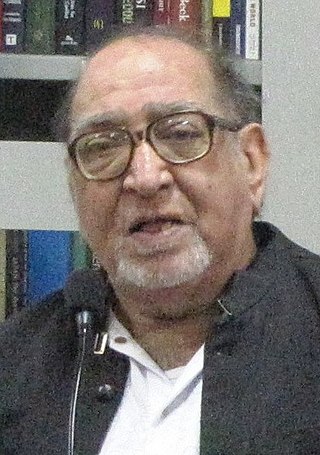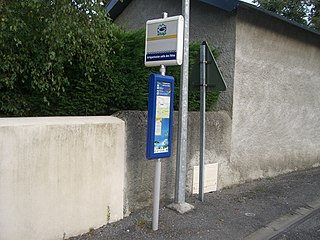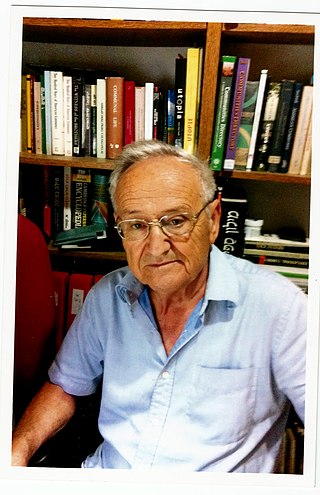
A kibbutz is an intentional community in Israel that was traditionally based on agriculture. The first kibbutz, established in 1910, was Degania. Today, farming has been partly supplanted by other economic branches, including industrial plants and high-tech enterprises. Kibbutzim began as utopian communities, a combination of socialism and Zionism. In recent decades, some kibbutzim have been privatized and changes have been made in the communal lifestyle. A member of a kibbutz is called a kibbutznik, the suffix -nik being of Slavic origin.

An intentional community is a voluntary residential community which is designed to have a high degree of social cohesion and teamwork. The members of an intentional community typically hold a common social, political, religious, or spiritual vision, and typically share responsibilities and property. This way of life is sometimes characterized as an "alternative lifestyle". Intentional communities can be seen as social experiments or communal experiments. The multitude of intentional communities includes collective households, cohousing communities, coliving, ecovillages, monasteries, survivalist retreats, kibbutzim, Hutterites, ashrams, and housing cooperatives.
The Union of Jewish Students of the United Kingdom and Ireland (UJS) represents Jewish students in the United Kingdom and Ireland. It is a member of the World Union of Jewish Students (WUJS) and the European Union of Jewish Students (EUJS) and an associate member of the National Union of Students, and is represented on the Board of Deputies of British Jews.

Cenobiticmonasticism is a monastic tradition that stresses community life. Often in the West the community belongs to a religious order, and the life of the cenobitic monk is regulated by a religious rule, a collection of precepts. The older style of monasticism, to live as a hermit, is called eremitic. A third form of monasticism, found primarily in Eastern Christianity, is the skete.

Asghar Ali Engineer was an Indian reformist writer and social activist. Internationally known for his work on liberation theology in Islam, he led the Progressive Dawoodi Bohra movement. The focus of his work was on communalism and communal and ethnic violence in India and South Asia. He was a votary of peace and non-violence and lectured all over world on communal harmony.

The commons is the cultural and natural resources accessible to all members of a society, including natural materials such as air, water, and a habitable Earth. These resources are held in common even when owned privately or publicly. Commons can also be understood as natural resources that groups of people manage for individual and collective benefit. Characteristically, this involves a variety of informal norms and values employed for a governance mechanism. Commons can also be defined as a social practice of governing a resource not by state or market but by a community of users that self-governs the resource through institutions that it creates.
Timothy A. Miller is a professor of Religious Studies at the University of Kansas at Lawrence. He has been involved in the Communal Studies Association (US) and Utopian Studies Society (Europe), and is past president of the International Communal Studies Association (Israel). He has a particular interest in intentional communities and new religious movements.

La Bastide-Clairence is a commune in the Pyrénées-Atlantiques department in the Nouvelle-Aquitaine region of south-western France.
Communities: Life in Cooperative Culture is a quarterly magazine published by the Global Ecovillage Network - United States. It is a primary resource for information, issues, and ideas about intentional communities in North America. Articles and columns cover practical "how-to" issues of community living as well as personal stories about forming new communities, decision-making, conflict resolution, raising children in community, and sustainability.
Botton is a small village within the North York Moors National Park in North Yorkshire, England which is mainly a Camphill Community for people with learning disabilities.

Ujamaa was a socialist ideology that formed the basis of Julius Nyerere's social and economic development policies in Tanzania after it gained independence from Britain in 1961.

A "Common Important Forest" in India is a forest governed by local communities in a way compatible with sustainable development. Such forests are typically called village forests or panchayat forests, reflecting the fact that the administration and resource use of the forest occurs at the village and panchayat levels. Hamlets, villages and communities of villages may actually administer such a forest. Such community forests are usually administered by a locally elected body, usually called the Forest Protection Committee, Village Forest Committee or the Village Forest Institution. Such committees are known as Van Panchayats in the Kumaon Division of Uttarakhand, Forest Co-operative Societies in Himachal Pradesh and Van Samrakshan Samitis in Andhra Pradesh. Legislation pertaining to communal forests varies from state to state, but typically the state government retains some administrative control over matters like staff appointment, and penalization of offenders. Such forests typically conform to the IUCN Category VI Protected Areas, but protection may be enforced by the local communities or the government depending on local legislation. Maharashtra is the state with the most forest land while Haryana has the least.

Communal violence is a form of violence that is perpetrated across ethnic or communal lines, where the violent parties feel solidarity for their respective groups and victims are chosen based upon group membership. The term includes conflicts, riots and other forms of violence between communities of different religious faith or ethnic origins.

Artigueloutan is a commune in the Pyrénées-Atlantiques department in the Nouvelle-Aquitaine region of south-western France. It is part of the urban area of Pau.

Arnos is a commune in the Pyrénées-Atlantiques department in the Nouvelle-Aquitaine region of south-western France.

Houplines is a commune in the Nord department in northern France. It is part of the Métropole Européenne de Lille.
Barraute-Camu is a commune of the Pyrénées-Atlantiques department in the Nouvelle-Aquitaine region of south-western France.
A voluntary society, voluntary community or voluntary city is a term used in right-libertarianism to describe an entity in which all property and all services are provided through what the proponents of the term call "voluntary means" and in which they include private or cooperative ownership.

The American Union of Associationists (AUA) was a national organization of supporters of the economic ideas of Charles Fourier (1772–1837) in the United States of America. Organized in 1846 in New York City as a federation of independent local Fourierist groups, the AUA published a weekly magazine called The Harbinger and published more than 70 books and pamphlets, which helped it to enjoy a brief moment of influence spreading the ideas of communitarianism to a circle of leading intellectuals.

Yaacov Oved is a historian and Professor Emeritus in the Department of History at Tel Aviv University, member of Kibbutz Palmachim, research fellow at Yad Tabenkin: the institute of research and documentation of the kibbutz movement, researcher of the history of communes in the world and co- founder of the International Communal Studies Association.













